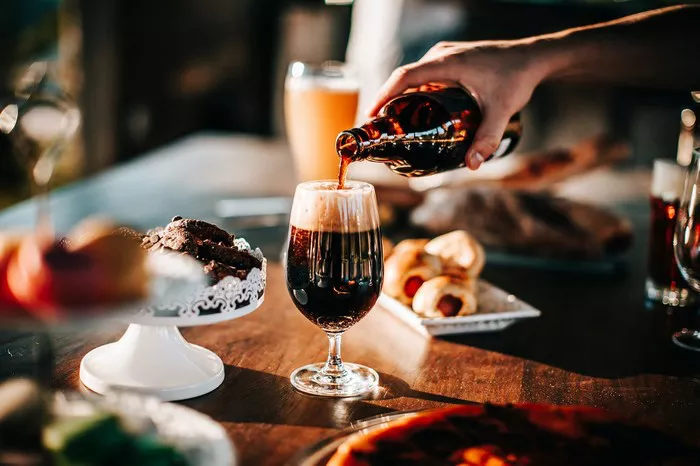Boiling beer is a crucial step in the brewing process. Whether you’re brewing at home or working in a professional setting, understanding how fast to boil beer can significantly impact the quality and flavor of the final product. This article provides a detailed guide on the factors affecting the boiling process, the benefits of efficient boiling, and best practices to ensure that your beer turns out perfectly.
The Importance of Boiling in Beer Brewing
Why Boil Beer?
Boiling is a fundamental step in brewing beer. It serves several essential purposes:
Sterilization: Boiling eliminates unwanted microorganisms and bacteria that could spoil the beer.
Flavor Development: The boiling process extracts flavors from the hops and malt, contributing to the beer’s taste and aroma.
Hop Isomerization: Boiling converts alpha acids in hops into iso-alpha acids, which contribute to the bitterness of the beer.
Protein Coagulation: Boiling helps in coagulating proteins that could otherwise cause haze in the finished beer.
Each of these functions plays a critical role in achieving the desired flavor, aroma, and clarity of the beer.
Factors Influencing Boil Time
The time required to boil beer depends on various factors:
Recipe Specifications: Different beer recipes have specific boil times based on the ingredients and desired outcomes.
Batch Size: The volume of beer being brewed affects how long it takes to reach and maintain a boil.
Boil Intensity: The heat source and its efficiency influence the boiling rate.
Altitude: Higher altitudes can lower the boiling point of water, affecting the boil time.
How Fast Should You Boil Beer?
Standard Boil Time
For most beer recipes, the standard boil time ranges from 60 to 90 minutes. This duration allows for adequate extraction of flavors from hops and malt, as well as proper sterilization.
60 Minutes: This is typical for many ales and lighter beers. It provides enough time for hop bitterness to develop and for protein to coagulate.
90 Minutes: This longer boil time is often used for stronger beers, such as IPAs or stouts, to achieve deeper flavors and more bitterness.
Factors Affecting Boil Time
Several factors can influence the ideal boiling time:
Type of Beer: Different styles of beer require different boil times. For instance, a pale ale may need a shorter boil time compared to a stout.
Ingredients: The amount and type of hops and malts used in the recipe can impact the necessary boil time.
Equipment: The efficiency of your brewing equipment, including the size and type of your pot and heat source, affects how quickly you reach and maintain a boil.
See Also: What Is a Beer Can Made Of? Materials and Process Behind Beer Cans
Techniques for Efficient Boiling
Reaching the Boil
To boil beer efficiently:
Use a Lid: Covering the pot helps it reach the boiling point faster by trapping heat.
Increase Heat Gradually: Start with a high heat setting to bring the beer to a boil quickly, then adjust to maintain a steady rolling boil.
Stir Frequently: Stirring prevents ingredients from settling at the bottom of the pot, which can cause burning or uneven cooking.
Maintaining the Boil
Once boiling:
Monitor Temperature: Use a thermometer to ensure that the boil temperature is consistent. Typically, water boils at 212°F (100°C) at sea level.
Adjust Heat: If the boil is too vigorous or too weak, adjust the heat to maintain a steady, rolling boil.
Control Foam: Excessive foam can be managed by adjusting the heat and stirring to prevent boil-overs.
Troubleshooting Common Issues
Boil-Overs
Boil-overs occur when the beer foam overflows the pot. To prevent this:
Use a Larger Pot: Ensure your pot is large enough to accommodate the foam.
Reduce Heat: Lowering the heat can help manage excessive foam.
Add Anti-Foam Agents: Some brewers use anti-foam agents to reduce the likelihood of boil-overs.
Inconsistent Boil
Inconsistent boiling can affect the flavor and quality of the beer. To address this:
Check Equipment: Ensure your heat source and pot are functioning properly.
Adjust Heat Settings: Fine-tune your heat settings to maintain a consistent boil.
The Impact of Boil Time on Beer Quality
Flavor Development
The duration of the boil affects the flavor profile of the beer:
Shorter Boil: A shorter boil time can result in a lighter, less bitter beer. It may also lead to incomplete extraction of hop flavors.
Longer Boil: A longer boil time can intensify flavors and bitterness but may also result in a darker color and more pronounced caramelization.
Bitterness
The level of bitterness in beer is influenced by the boil time:
Extended Boil: An extended boil extracts more bitterness from hops, which is ideal for styles like India Pale Ales (IPAs).
Shorter Boil: A shorter boil time results in less bitterness, suitable for lighter ales and lagers.
Best Practices for Boiling Beer Preparation
Sanitize Equipment: Ensure that all brewing equipment is properly sanitized to prevent contamination.
Measure Ingredients: Accurately measure hops and other ingredients to ensure consistency and quality.
Execution
Maintain Cleanliness: Keep the brewing area clean to avoid contamination and ensure a smooth brewing process.
Follow Recipe Guidelines: Adhere to the recipe’s boil time and temperature guidelines for optimal results.
Post-Boil
Cool Quickly: After boiling, rapidly cool the beer to prevent off-flavors and maintain freshness. Use a wort chiller or an ice bath to speed up the cooling process.
Monitor Fermentation: Proper boiling is just one step in the brewing process. Ensure that fermentation conditions are also optimal for the best results.
Conclusion
Understanding how fast to boil beer is essential for achieving the perfect brew. By following the recommended boil times and techniques, you can ensure that your beer develops the right flavors, aromas, and bitterness. Whether you’re a home brewer or a professional, mastering the art of boiling beer will help you produce high-quality beverages that are sure to impress.
By adhering to the best practices outlined in this guide, you can enjoy the satisfaction of crafting exceptional beer with confidence. Cheers to perfecting your brewing process and savoring the fruits of your labor!


